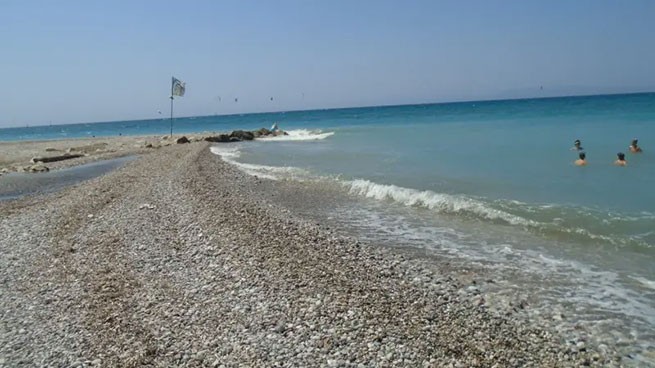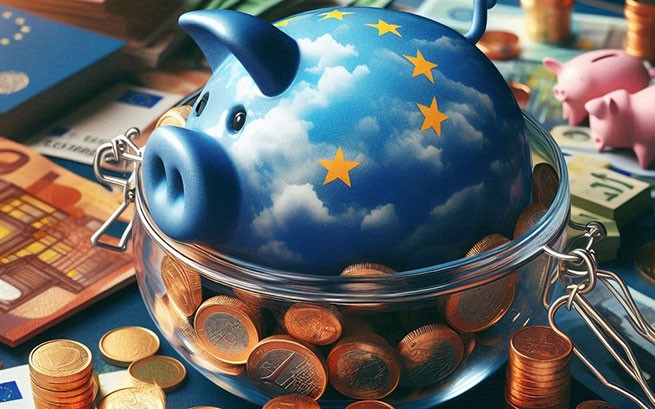EU plans to use the 10 trillion euros of European citizens' bank deposits and pension savings to invest and grow.
These funds, which, according to European leaders, are “languishing” in citizens’ bank accountscould be invested in stocks on the stock exchange. And also in other investment products to boost the weakened European economy.
Politico presents the plan, highlighting that for many governments, from Athens to Berlin, breaking down the barriers that limit investment of these funds is seen as the last chance for the European economy. The EU has long discussed integrating capital markets, and support for the idea is growing.
“We can't put off these investments any longer,” French President Emmanuel Macron said. European Commission President Ursula von der Leyen stressed that her upcoming five-year term is “time to invest”which will start with “completing the unification of our capital markets.”
Investments and risk
The European economy is increasingly lagging behind the US and China. Manufacturing is in recession, and start-ups are far fewer and less successful than their non-EU peers. At the same time, fiscal rules in the bloc severely limit public spending and investment.
“We need to finance risky innovative projects to reduce the technological gap with the United States,”– said Stefan Bouzna, CEO of Europe's largest brokerage group Euronext. There is one important detail in his statement: projects “risky”. The €10 trillion bet is a risky move because it involves vital funds for many European citizens.
Their 10 trillion euros of savings look very attractive, but “risking” them is an extremely ambitious and risky plan. As a first step, France has proposed creating a single savings product for the entire EU. The aim is to encourage Europeans to withdraw their money from bank deposits and invest it in company shares, thereby helping them grow.
Pensions, Politico writes, are also an important part of the plan. With a few exceptions, such as the Netherlands and Sweden, in most European countries pensions are paid by the state and financed by social security contributions. In the United States, there is a tax-incentivized private account through which a citizen's funds can be invested before retirement.
The idea of using pension savings for investment is gaining more and more support in the European Union
The EU sees the use of these funds for investment as an obvious option and cites some comparative data with the US to support its position:
- About 60% of American households own stocks, either directly or indirectly through their pensions.
- In France and Germany, this figure is around 18%.
Berlin and Paris also seem to “like” the idea of tapping into European citizens' reserves. The Germans support the idea because it would avoid the need for ever more joint borrowing within the EU, a scenario that is seen as “nightmarish” for Berlin.
On the other hand, the French see the use of reserves as another step toward reducing the EU's dependence on US private capital. At the same time, European money can be directed to areas that the European leadership deems critical in each specific case. At present, this concerns energy and defense.
Difficult plan
Despite the intentions of European leaders and the commission, this is not an easy plan. Above all, standardization of bankruptcy laws is crucial to its progress. Citizens need to know exactly what will happen if the investments they have invested their money in turn out to be unsuccessful. Also important is the issue of creating a single EU supervisory body for “non-bank” financial institutions, such as stock exchanges and asset managers. The rules should be uniform for everyone operating in the European bloc.
But there are also many reservations from influential “players” within the member countries. Being a big fish in a small pond is nice and very profitable. In a more competitive environment, many “dominant players” at the national level may be at risk of survival. For example, financial institutions may go bankrupt or be forced to acquire competitors.
Is this really a solution?
Even if European leaders do complete the capital markets union, experts say it may not be the solution they are looking for. The reason is that no one knows how much funding will ultimately be freed up by this plan. Thierry Philippon, chief economist at the non-governmental organization Finance Watch, points out in an interview with Politico that some of the most optimistic results “they pass off wishful thinking as reality.”
“Look, do, but don’t dream of financing unprofitable projects or projects without sufficient returns,– he said. – This will never happen. And much of what we need to do today, especially to combat climate change, is of precisely this nature.”.
A recent report by Finance Watch found that even in the best-case scenario of capital markets unification being completed, private finance would only be able to meet a third of the EU's green transition needs. The remaining funds must be obtained from the state budget.







More Stories
Today, the Niarchos (Νέαρχος) will be launched at the Lorient shipyard in France
Greek private and public sector unions announce nationwide strikes
Greece: Threat of Demographic Collapse (Video)